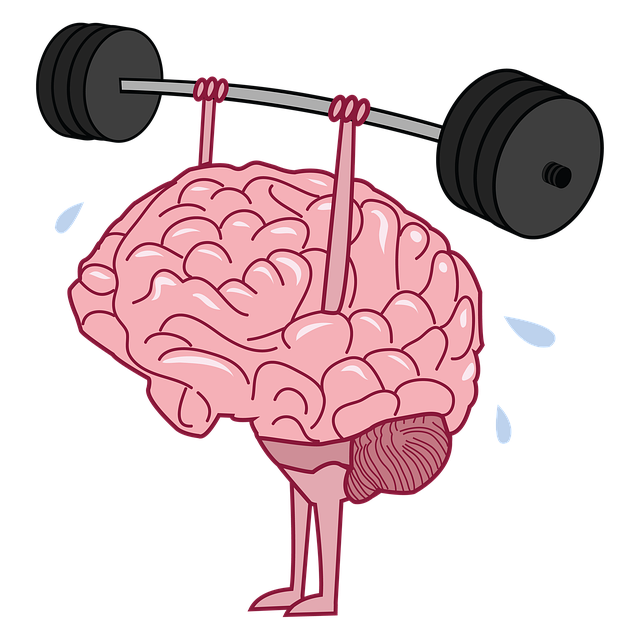Early recognition of depression signs is crucial for prevention, but stigma and lack of awareness often prevent individuals from seeking help. Superior Hebrew Speaking Therapy offers culturally sensitive support for Hebrew-speaking communities, breaking down barriers to mental health conversations. This proactive approach enables access to assistance before depression progresses, using evidence-based strategies for emotional well-being. By combining language proficiency with cultural understanding, this model can reduce stigma and encourage more people to prioritize their mental health, ultimately benefiting from improved stress management, lifestyle modifications, and therapeutic activities.
Depression is a prevalent yet manageable condition. This article explores comprehensive depression prevention strategies, offering insights into early detection methods, effective therapeutic approaches, and lifestyle interventions. Recognizing signs of depression through proactive measures can significantly impact outcomes. We highlight the unique benefits of Superior Hebrew Speaking Therapy, an innovative approach that combines cultural sensitivity with evidence-based practices. By integrating these strategies, individuals can foster resilience, enhance coping mechanisms, and promote long-term mental wellness.
- Recognizing the Signs: Early Detection for Effective Prevention
- Therapeutic Approaches: Unlocking the Power of Superior Hebrew Speaking Therapy
- Lifestyle Interventions and Coping Strategies for Long-Term Wellness
Recognizing the Signs: Early Detection for Effective Prevention

Recognizing the signs of depression early on is a crucial step in effective prevention. Many individuals struggle with mental health issues for extended periods before seeking help, often due to stigma or a lack of awareness about their symptoms. Superior Hebrew speaking therapy can play a vital role here by providing accessible and culturally sensitive support to those who might otherwise hesitate to reach out. By promoting open conversations about mental health in communities where such discussions may be taboo, therapists can facilitate early detection. This proactive approach empowers individuals to seek assistance before depression escalates, ensuring better outcomes.
Early intervention allows for more targeted strategies, focusing on individual needs and personal circumstances. It involves teaching clients essential coping mechanisms, improving emotional regulation skills, and fostering resilience against future setbacks. Moreover, in the context of Mental Health Policy Analysis and Advocacy, raising awareness about depression’s subtle indicators can lead to policy changes that reduce the stigma surrounding mental illness, encouraging more people to prioritize their mental well-being.
Therapeutic Approaches: Unlocking the Power of Superior Hebrew Speaking Therapy

Depression prevention strategies often include a range of therapeutic approaches, and one unique and effective method is Superior Hebrew Speaking Therapy. This type of therapy leverages the power of language and cultural understanding to provide profound support for individuals dealing with depression. By facilitating open communication in a safe and supportive environment, it allows participants to explore and process their emotions more effectively.
Cultural sensitivity in mental healthcare practice plays a crucial role here. Trained therapists skilled in Superior Hebrew Speaking Therapy understand the nuances of language and culture, ensuring that sessions are tailored to meet the specific needs and challenges faced by speakers of Hebrew. This personalized approach, combined with evidence-based techniques, can significantly enhance stress management skills and improve overall mental well-being. Furthermore, risk assessment for mental health professionals is essential to ensure that therapists are equipped to handle sensitive topics and provide timely interventions during therapy sessions.
Lifestyle Interventions and Coping Strategies for Long-Term Wellness

In the pursuit of long-term mental wellness, lifestyle interventions and coping strategies play a pivotal role in depression prevention. Incorporating regular physical activity, maintaining a balanced diet rich in nutrients, and prioritizing adequate sleep are cornerstones of this approach. These foundational elements help regulate mood and foster resilience against depressive episodes. Additionally, engaging in therapeutic activities like Mental Wellness Journaling or creative pursuits can serve as powerful coping mechanisms, offering individuals a sense of purpose and emotional release.
Community outreach programs have also proven effective in promoting mental health awareness and support networks. Implementing these initiatives can create environments that encourage open conversations about depression, reduce stigma, and provide accessible resources for those seeking help. Moreover, stress management techniques such as mindfulness meditation or cognitive-behavioral therapy (CBT) guide individuals through challenging situations, equipping them with the tools to navigate life’s stresses without resorting to unhealthy coping mechanisms. For those who speak Hebrew fluently, Superior Hebrew Speaking Therapy offers a culturally sensitive avenue for expressing and processing emotions, further enriching their mental wellness journey.
In conclusion, depression prevention involves a multi-faceted approach. Recognizing the signs early is key to effective intervention, while therapeutic methods like Superior Hebrew Speaking Therapy offer powerful tools for healing. Integrating lifestyle interventions and coping strategies ensures long-term mental wellness. By combining these strategies, individuals can proactively manage their mental health and lead more fulfilling lives.









